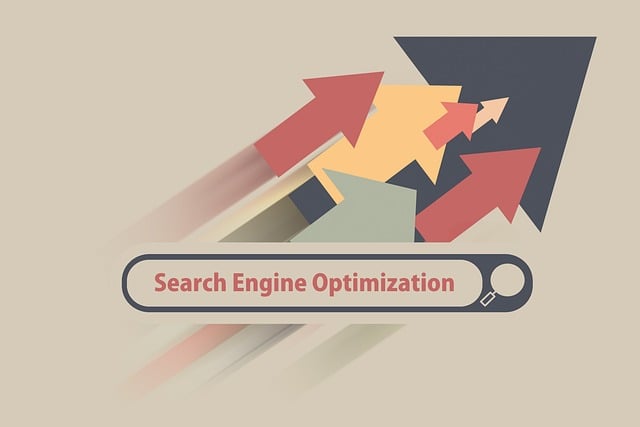Off-Page SEO is essential for boosting website visibility and search engine rankings, focusing on high-quality backlinks from authoritative sources like industry leaders, news publications, and influential blogs. This strategy involves building natural links through guest blogging, creating valuable content, broken link building, and collaborating with complementary businesses. Analyzing competitor backlink profiles and establishing meaningful relationships with influencers are key tactics. Avoiding unnatural anchor text and low-quality links is crucial, emphasizing diversity and relevance. Measuring success through high-quality backlinks and tracking website traffic provides valuable insights for refining Off-Page SEO strategies.
In the competitive digital landscape, understanding Off-Page SEO is pivotal for boosting your website’s visibility. This article delves into the core strategies and nuances of Off-Page SEO, focusing on backlinks as a powerful ranking signal. We’ll explore why high-quality backlinks are essential, guide you through identifying reputable sources, offer practical outreach techniques, and highlight common pitfalls to avoid. By the end, you’ll be equipped with actionable insights for successful Off-Page SEO efforts.
Understanding Off-Page SEO: The Role of Backlinks

Off-Page SEO is a crucial component in determining a website’s visibility and search engine rankings. It involves optimizing your online presence beyond your site itself, focusing on external factors that impact how other websites perceive and link to yours. The role of backlinks in Off-Page SEO cannot be overstated; they are one of the most significant signals used by search engines to evaluate a site’s authority and relevance.
Backlinks, or incoming links from other websites, act as votes of confidence for your site. When high-quality, relevant sites link to yours, it tells search engines that your content is valuable and trustworthy. This signal helps search algorithms understand the context and purpose of your website, influencing its placement in search results for specific keywords. Effective Off-Page SEO strategies should aim to acquire backlinks from reputable sources, ensuring they align with your niche and contribute to a diverse and natural link profile.
Why Are Backlinks Important for Your Search Engine Rankings?

Backlinks, or incoming links from other websites, play a pivotal role in shaping your online visibility and search engine rankings. They are a crucial component of Off-Page SEO, which refers to all activities outside your website that impact your search rankings. When high-quality websites link to yours, it signals to search engines like Google that your content is valuable and trustworthy. This positive association enhances your site’s authority and credibility, making it more likely to appear higher in search results for relevant keywords.
Additionally, backlinks contribute to better domain authority, which is a measure of the overall quality and trustworthiness of your website. The more reputable and relevant websites that link to yours, the stronger your signal becomes. This strength can lead to improved rankings, increased organic traffic, and better visibility in the digital landscape.
Identifying High-Quality Backlink Sources

In the realm of Off-Page SEO, identifying high-quality backlink sources is a strategic art. These links serve as a crucial component in enhancing your website’s visibility and authority. When searching for backlinks, it’s essential to go beyond sheer quantity and focus on the quality and relevance of the sources. Reputable, industry-leading websites carry significant weight, indicating to search engines that your content is valuable and trustworthy. Look for platforms and sites that align closely with your niche, as these are more likely to attract an engaged audience and pass on their authority to your site.
High-quality backlinks often come from authoritative news publications, influential blogs within your industry, or reputable online directories. These sources not only provide a boost in search rankings but also expose your content to a targeted audience. Additionally, focusing on obtaining backlinks from websites with an established track record of quality content can indirectly improve your own site’s content standards, fostering a positive reputation for your brand in the digital landscape.
Strategies to Build Natural and Effective Backlinks

Building natural and effective backlinks is a critical component of successful Off-Page SEO. One strategic approach involves identifying and engaging with industry influencers, who can endorse your content by linking to it naturally. This could be through guest blogging, where you contribute valuable articles to reputable websites within your niche, fostering a sense of community while earning backlinks. Another powerful tactic is to create high-quality content that inherently attracts links. In-depth guides, original research, and infographics are more likely to be linked to by other sites, as they offer substantial value to readers.
Additionally, leveraging broken link building strategies can be effective. This involves finding broken links on relevant websites and offering your content as a replacement. By reaching out to webmasters with relevant and high-quality alternatives, you not only gain backlinks but also improve user experience on those sites. Collaborating with complementary businesses through mutual guest posting or resource sharing is another organic way to build backlinks, ensuring that both parties benefit from the exposure to new audiences.
Analyzing Your Competitors' Backlink Profile

Analyzing your competitors’ backlink profiles is a powerful strategy within Off-Page SEO. By examining their link sources, you gain valuable insights into the digital landscape and uncover potential opportunities for your own website. Tools like Ahrefs or SEMrush allow you to spy on your rivals’ most influential backlinks, revealing high-authority sites that could benefit from a partnership with yours.
This competitive analysis helps identify gaps in your own backlink strategy. If competitors have established themselves on relevant, high-ranking websites, it’s an opportunity to fill those voids and enhance your site’s authority. Understanding their tactics allows for more targeted outreach, ensuring your efforts are directed at the most effective link building strategies.
Effective Outreach Techniques for Backlink Acquisition

In the realm of Off-Page SEO, effective outreach techniques are pivotal for acquiring high-quality backlinks. The strategy involves building meaningful relationships with influencers and industry leaders who can vouch for your content’s value. This could include reaching out to prominent bloggers in your niche, offering guest posting opportunities that provide a win-win scenario where you offer valuable content while they gain a relevant backlink. Additionally, engaging with industry forums and comment sections, contributing insightful responses, and leaving links to your site where appropriate, can foster goodwill and lead to natural backlinks over time.
Another potent technique is collaboration with complementary businesses or organizations. Co-creating high-quality resources like whitepapers, webinars, or joint blog posts not only generates valuable content but also opens doors for mutual backlink placements. Moreover, participating in industry events and conferences provides opportunities to network with peers who might be more inclined to link to your site if they perceive you as an expert in your field. Remember, the key is to focus on building genuine connections and providing value, ensuring that backlinks are earned rather than purchased.
Common Mistakes to Avoid in Off-Page SEO

In the realm of Off-Page SEO, several common pitfalls can hinder your efforts. One significant mistake is neglecting to diversify anchor text. Using the same or similar links with generic anchor text can signal to search engines that your backlinks are not natural, leading to potential penalties. Always strive for a balanced profile with diverse anchor texts, including brand names, keyword-rich phrases, and generic terms.
Another blunder is failing to prioritize quality over quantity. While it’s tempting to aim for the highest number of backlinks, focusing solely on quantity can result in low-quality links from irrelevant or spammy sources. Take the time to research and build relationships with reputable websites in your niche. High-quality backlinks from authoritative sources carry more weight and contribute positively to your search engine rankings.
Measuring the Success of Your Backlink Building Efforts

Measuring the success of your backlink building efforts is a crucial aspect of Off-Page SEO, as it allows you to understand the impact and effectiveness of your strategies. The primary metric to track is the number of backlinks acquired from high-quality sources. These can be analyzed in terms of their authority, relevance, and diversity. High-authority backlinks from reputable websites carry significant weight, indicating that your content is trusted by industry leaders. Relevance matters because a backlink from a site related to your niche has more value than one from an unrelated sector, as it suggests a genuine connection and potential audience engagement. Diversifying your backlinks across various domains enhances your site’s profile in the eyes of search engines.
Additionally, monitoring website traffic and referral sources can provide insights into the conversion rate of these backlinks. Tools like Google Analytics can help identify which links drive the most visitors to your site and where these users are coming from. This data is invaluable for optimizing future link-building strategies, ensuring that resources are focused on acquiring backlinks with the highest potential to boost your search engine rankings.
